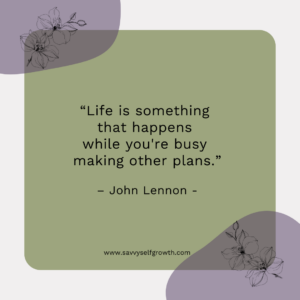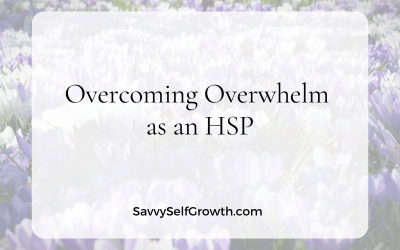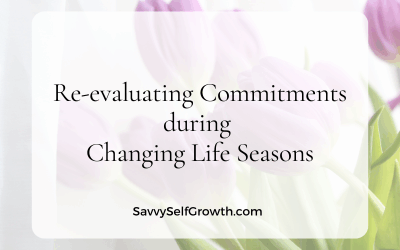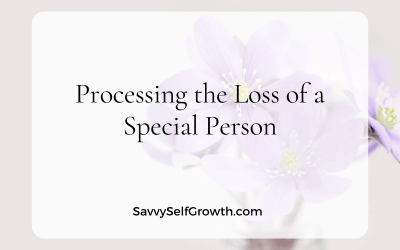“Life is something that happens while you’re busy making other plans.”
~ John Lennon ~
I am currently seeing John Lennon’s quote in many forms in, and around me.
I wonder if you’re noticing this, too?
Unplanned events and situations often come our way. Things like sudden illness, an accident, a job loss in our own life, or that of a loved one. And all of those mean we must make changes to adapt to the new situation.
Adapting and change
Adapting to a sudden change is not easy for most people, especially if we did not choose it. It’s hard enough to change when it’s our choice. Think of how challenging it can be to stick to a new habit that we know is good for us!
An example of an unplanned situation:

You may remember a while ago I wrote about my dear friend and colleague, Bennie Naude, who was in hospital with meningoencephalitis. His body has made a remarkable physical recovery, after 2 months in the hospital and another 2 in a rehabilitation facility. There is still some way to go with his short-term memory recuperation, and there are so many signs of progress every week. It is amazing to witness the healing ability of a body that was so very ill.
Examples in my own life:
I’ve felt this quote in my own life many times. I make plans and set intentions for my life and business at the beginning of every year. Despite that, so often, life has taken me in a direction that is nowhere near my list.
The emotional impact
A sudden, unexpected change can be hard to accept, especially if it takes us way off course for a goal we’ve had. We’ll all respond in a unique way, due to our past programming.
Many of us ‘argue’ with the experience and feel angry and resentful, while others feel that we’re ‘failing’. Or we can believe “it’s all my fault… if I was good enough (or had a high enough vibration), I’d be able to manifest what I had intended”. (Don’t get me going on this one… I have a lot to say!)
There are so many aspects to a difficult, unplanned experience, and I feel the bottom line is this.
Ready?
We can rile against it and suffer, or accept where we are and have more peace — and then decide who we want to be in that moment and until we’re in a better place.
And oh, dear one… if you thought I said that was easy, read it again. I’m absolutely not saying that. It’s a simple concept, yes, and not easy.
All the Layers
It’s usually not a matter of simply deciding “Okay, I’m accepting this big change. I’m happy now.”
There are many emotional layers to process when big change has been foisted upon us.
There could be loss, grief and intense sadness for what we’ve lost and what we had planned for. The loss can be for physical things, but also mental and emotional losses… a future we’d planned that will never happen, growing old with someone, a dream we must let go of.
Loss is painful. After a big loss, we often need to reconstruct a world of meaning for ourselves — and that takes time. First, we have to process some or all of the pain, before any new steps and meaning can begin to form.
There can be anger about the unfairness of the situation, or with the persecutor (person or situation) that caused it. We can experience helplessness — and even be angry about the helplessness. Often we can feel fear and awful anxiety about facing an uncertain future.
We can feel resentful when we see others with an easier life, and resist everything that is happening. It’s possible to go into a depression about our lot, and the events could even reinforce beliefs like “I never get what I want” or “I get what I want but it’s ripped away as soon as I have it.”
This is a very hard place to be for the person in that situation, as well as for those around them. Everyone has their emotions to cope with, and that can cause misunderstandings and sparks to fly. More emotional layers are added to the difficulty!
Our Emotions are all Valid and Important
All those emotions are valid, useful messengers about the inner process of change. And no amount of denying, ignoring, repressing, or suppressing will make those emotions magically disappear.
We’re experiencing life in a human body, with human emotions and human chemical (hormone) responses.
It is possible to process these emotions (chemical messengers) consciously, so that we don’t end up with other spin-offs later. And it’s amazing how effective this can be to bring us a sense of freedom from those deep, intense emotional burdens.
A Great Recipe
The best way I know of to calm strong emotions is EFT tapping. With tapping, we can consciously call up every one of those emotions, do a few rounds of tapping and feel the remarkable release and relief of having ‘processed’ it so our body and brain feel free again.
I’ve seen people process something they’ve been carrying for years in only a few minutes and be free of it.
Others take a little longer because there might be complex layers intertwined with their beliefs about themselves, others and life.
Here is one example (2 min video) from Dorota Godby. She’s a coach and decluttering doula for naturally sensitive people, at GentlePower.co.uk.
The basic traditional EFT process works like this:
Think of your problem (the situation causing you distress). Write down all the emotions you’re feeling about it. You can even draw a mindmap and make it a fun, creative exercise. Then, take each emotion one by one, and do a few rounds of tapping (on all the points in this video) until that emotion feels neutral. Then, take the next one and do the same.
I will release a new video soon with some tapping and ideas to work with this. In the meantime, you can take a look at the video in the ‘Self-Help’ Section below.
Only AFTER processing, can we find the benefits
My recommendation is never, ever to jump straight to “So what are the benefits of this massive life-changing thing?” (especially not directed at a dear person in your life).
We must first acknowledge, validate and process all the layers of what’s happened. The time that takes is unique for each of us, and no-one can force another human being to see the upside of anything, until they are internally ready for that.
Please let’s not make the mistake (some call it toxic positivity) to try and make someone else see the silver lining, when all they can experience right now is the enormity of that dark cloud. In that case — simply be there with them, express empathy, listen, let them know their feelings are valid, and let them seek out professional support if you are not able to.
I had to have several EFT tapping sessions about Bennie’s diagnoses and situation, to feel calmer and more accepting, before I could possibly experience a change in my attitude. The worry, fear, and feelings of unfairness were so intense.
However, when the emotional intensity was out of the way, I had the mental space to find the nuggets of this difficult experience.
We also don’t ever have to conclude that a situation was right or fair if it wasn’t… but we don’t have to carry the emotional burden of that. It is completely possible to think something is unfair or unjust, while feeling emotionally calm and neutral.
Three benefits of Change I’ve experienced personally:
I’ve been in many, many life-altering difficult situations in my life. Divorces, other break-ups, theft, accidents, major career transitions, miscarriages, the illness and death of loved ones. All of them take time to process and many I could not process until years later when I finally found EFT and The Sedona Method.
#1: It can help us grow, develop, and stretch our comfort zones.
Yes, those situations were not what I would have chosen for myself. But once I’d processed the awful hurt, pain, all the layers, I could see how I’d stretched to a new version of myself. Sometimes the learnings can only show up years later. And again, I want to reiterate that we should not be the ones to point out what others could or should learn from it. That is for the person in that situation to experience and receive insights.
#2: Difficult situations can bring families closer together.
It happened in my family when my dad was in ICU for 6 weeks and then passed away. Family members who had fallen out, started talking to each other again. To an extent, it mended some past hurts.
And it’s happened in Bennie’s situation, too.
So many of his friends have banded together to support him and his family in multiple ways: offering therapies at no charge, visits with Bennie when the family is not able to, even financial support. It’s been incredible to witness how well-loved Bennie is and how many are turning up to support him now when he most needs it.
#3: It can bring friends closer together.
It’s also brought Bennie’s friends closer together. Just this past Saturday, I had another deep and wonderful conversation with a mutual friend in Melbourne, Australia. Diarmaid and I lost touch a few years ago, but Bennie’s illness has urged us to reach out and connect with each other again several times.
We shared many golden moments in discussion and were able to remind each other how remarkable the human body and psyche are.
If you need a story of hope and (brain) recovery, watch the below video of Jill Bolte Taylor. She is a brain scientist who had a stroke in the left hemisphere of her brain and was aware of what was happening. After a long, intense recovery, she wrote a fantastic book called ‘My Stroke of Insight’ and this video is an inspiring summary where she tells her story from a fully recovered place.
Jill Bolte Taylor: My stroke of insight | TED Talk
Resources
Life keeps bringing us challenges, my dear friends. None of our lives is free of events that stretch us or our comfort zone. It’s not easy or pleasant to deal with those situations when we’re frozen with fear or other emotions.
However — there is a way out. EFT is my preferred way to get relief and truly let go of those strong, intense emotions that can keep us feeling like we’re drowning. It can happen quicker than you think with EFT, so you can feel free, and move on to create a new future.
Yes, maybe not the one you’d originally planned, and yet it can be even better if we can walk that path while feeling calm and resourceful.
Skeptical? I get it!
If you’re skeptical about EFT itself, I completely get it. That’s quite normal! Who would think that tapping on a few points on your body can help resolve so much?
Here are a few books about EFT Tapping from a scientific point of view:
Tapping: Self-Healing with the Transformative Power of Energy Psychology
Dr David Feinstein (psychologist) and his wife, Donna Eden (of Eden Energy Medicine), have just released this book. It’s fantastic, filled with stories of healing and science.
The next 2 books were all written by dr Peta Stapleton, scientist and researcher from Bond University in Australia. Her research includes EFT studies in MRI machines and measuring hormones like cortisol levels in the body. It’s well worth following her on social media or buying a book.
The Science behind Tapping: A Proven Stress Management Technique for the Mind and Body.
Memory Improvement Through Eft Tapping: A Way to Boost Recall and Clarity
In closing:
If you have any questions about EFT tapping, please do reach out. I’ve been an EFT practitionersince 2006, and have seen many wonderful results (that can be called miracles) during this time.




